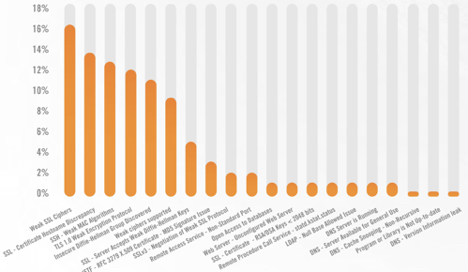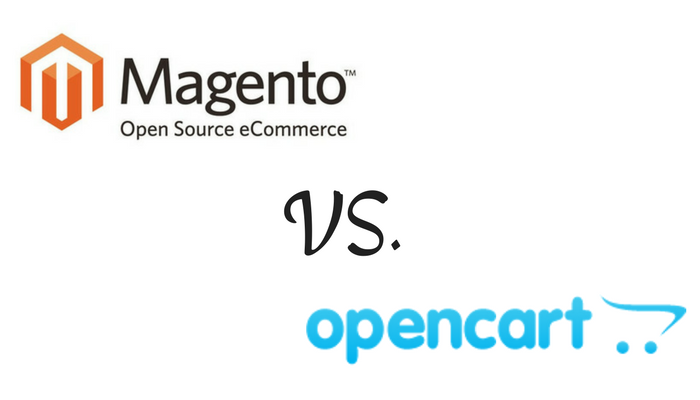2019's best security solutions for your eCommerce website
In the era of the internet, the people's trend toward online shopping has been flourishing rapidly from the last decade. Every enterprise ranges from...


Magento is one of the most popular eCommerce platforms in the market. Since a recent couple of years, there has been a massive development because of its open source and flexible environment. It accompanies robust themes and extensions with the goal that its look, feel, and functionality can be personalized according to the person's particular necessities.
Attributable to the developing influence of Magento development in the e-commerce field, it has turned into the hacker’s absolute favorite too. Notwithstanding Magento is one of the most secure platforms for open source eCommerce and its repeated undertaking to ruin security attacks by often launching security patches, cybercriminals haven't been discouraged from thinking of new traps.
The most widely recognized kind of activities that are organized by these hackers so as to access a site incorporate:
Despite the fact that Magento engineers consistently release security updates there remains a great deal to accomplish for the site owners. There are a lot of DIY Magento security practices that site admins ought to follow to keep their endeavors ensured. After all, in the online business store business, everything comes down to trust.
So, let 's investigate a few of the precautionary steps that should be embraced for battling security attacks.
While it's smarter to concentrate on counteractive action instead of fix, cyber breaches are an awfully great hazard for organizations to compromise.
You can never be excessively protected if the security of your online business brand is at stake. Backups ensure your site dependably has a recovery period in the event of a misfortunate cyberattack.
With backups, you get to restore your site to past forms if there should arise an occurrence of any breakdown or data loss. Conceivable glitch situations may incorporate site hacking and deletion of information by hackers, website crashes, unintentional removal of documents, website errors because of the new extension or wrong setup. So, to return to normalcy as quickly as time permits, you ought to have a backup plan.
As making backup manually can be monotonous, it's optimal to utilize an automated backup device that frequently saves your site’s data to local storage media or on the cloud.
Magento's built-in functionality enables you to make dynamic backups like Database and Media Backup, System Backup, and Database Backup. Contingent upon what your necessities are, you can make the offsite backup and downloadable backups on an hourly basis. Remember to integrate hard disk backup and cloud storage in your backup program.
By utilizing a default admin path, you increase a hacker’s chances of cracking the username and password of the user. Since as hackers access they can detect the credentials of admin utilizing Brute Force method. Thus, it is very much prescribed to switch the administrator path. There are two different methods of doing it.
The first method is through the admin backend. For this -
Navigate to System - Config - Admin - Admin Base URL - Use Custom Admin Path - Tap on 'Yes.'
The other method is to execute changes in your local.xml configuration file. You can access it by traversing the underneath path:
<admin>
<routers>
<adminhtml>
<args>
<frontName><![CDTA[admin] ]</frontName>
</args>
</routers>
</admin>
Then place the new admin path in the spot of [admin].
When you play out the change, save the configuration file afterward refresh your cache.
Furthermore, a few users tragically use a basic username and password to sign in to their Magento admin panel. It can make the site inclined to hack. Online cyber criminals find such sites an obvious target, and you may lose sensitive information from your website.
Thus, a standout and ideal method for securing your Magento stores from the hackers is to utilize strong passwords with the combination of lowercase and uppercase letters.
Also, site owners ought to change their passwords periodically to dodge sites being hacked by cybercriminals.
Never put all your investments tied up in one place. So, when it comes to the Passwords setting either, you have to continue changing your passwords as mentioned above all the time with the most intricate combinations which can be a tedious task for some or you settle on a two-tier validation.
Two-tier authentication encourages you to check attacks all the more adequately. There are a couple of extensions that carry two-factor verification removing your password fears and facilitating your Magento security threats.
Below are two of the main extensions that can enable you to command the 2-tier system -
Try not to utilize your usual email address for admin users. Anybody can without effort locate your usual email address from visiting card, social media profiles, and so on. So, it can be undermined and enable the cybercriminals to get access to your Magento admin panel.
Commonly, you will be informed that the recent version is not the best. But on the maximum occasions, it is an untruth.
Magento gets updates all the time at a decent pace. Consequent Magento versions will fix security issues of the previous ones. So, it is imperative to remain educated about the recent Magento version. When a steady release is out online, test it and get your Magento site updated.
Information sent over unencrypted connections is outstandingly vulnerable against interference by outsiders. But a legitimately executed SSL certificate will help secure sensitive data, for example, buyers’ details, Visa card information, and login credentials, among others.
You can buy an SSL certificate through any authenticated Certificate Authority and implement it via SiteWorx.
These are the steps to build a secure connection -
Https empowered connections with green padlocks icon are tough and robust to breach. Besides, to be PCI compliant, it is compulsory for you to enable the HTTPS/SSL encryption.
When you have the SSL certificate installed, set up your Magento installation required to protect the resources on specific pages, driving the pages to be loaded on HTTPS.
Absolutely, Magento extensions streamline your duty at the least or no expense sometimes. But some fake Magento extensions go about as a portal for cybercriminals to enter.
So, perform comprehensive research such as go through customer ratings and reviews on online forums, analyze the developer’s background, and so on before implementing a third-party Magento extension to your website.
You can hide the distinct pathways by disabling directory index through means of which the files of your site are saved and harden the security of your e-commerce platform. It keeps hackers from getting to main files on your domain.
Amongst the most usually utilized techniques to hack a site is by intercepting or speculating FTP passwords.
It's fundamental that you apply SFTP (Secured File Transfer Protocol) along with secure passwords to stop happening it with your store. SFTP utilizes a private key file for decryption or validating a user.
Access to SFTP is as of now accessible on Cloudways.
In case that you’re a startup and can't bear to have a devoted hosting plan or progressively secure virtual private servers, it is recommended you opt for shared hosting service, a low-cost option for hosting a site. It may include a specific trade-off on your Magento security yet this step can spare you from complete devastation.
In case by any chance you wind up having issues with shared hosting you can move to the dedicated one, this confines your resources, and if there is an unexpected increase in your website traffic, the site has a decent possibility of going down.
Shared cloud hosting has its own scope. Powerful security with regular patches at server-level preserves you for sure.
Though your Magento developers may have the capability to layer up the protection of your Magento store, it is prudent to take the help of a security specialist.
They will be fully informed of the latest cyber security trends and will be skilled at finding the security loopholes in your site. They will perform a security test to resolve incorrect application codes and identify cross-site scripting, SQL injections, and other such security threats.
Need help building or maintaining your eCommerce website? Get in touch

In the era of the internet, the people's trend toward online shopping has been flourishing rapidly from the last decade. Every enterprise ranges from...

Choosing an eCommerce platform for your business can never be an easy exercise. With more than 100 of popular options available, users are bound to...

Website development has become a much simpler thing in today’s time, but complicated on the other hand. Today, static websites are passe, as they...